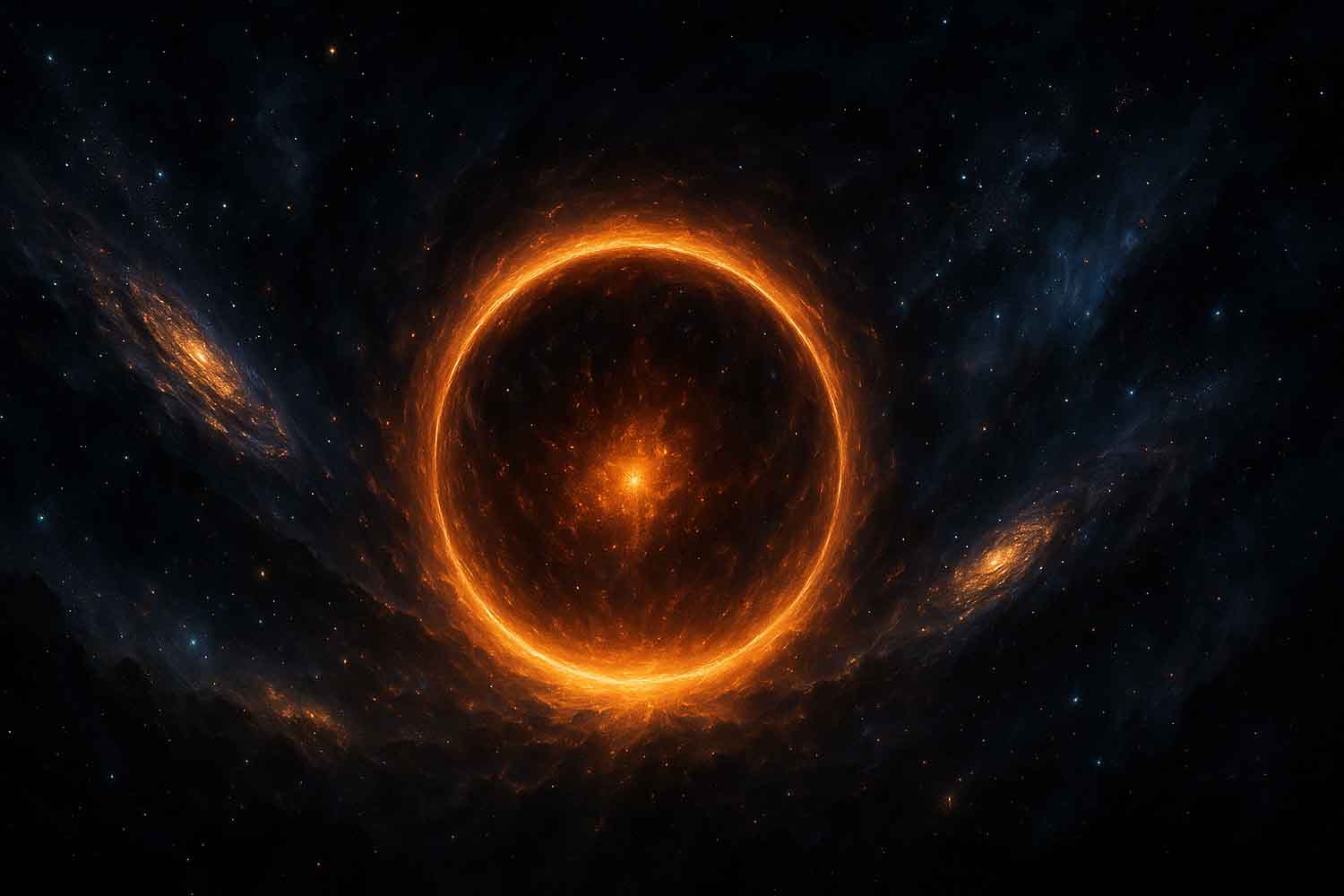Could the universe end not in a freeze, but a fiery collapse? Scientists revisit the Big Crunch theory and what it might mean for the cosmos.

For decades, we’ve grown accustomed to a comforting — if chilling — idea: the universe, born some 13.8 billion years ago, will expand forever, slowly fading into the cold silence of the cosmic void. This is the narrative we’ve told ourselves — a quiet end, a long exhale into nothingness.
But now, some scientists are breathing new life into one of the most dramatic, unsettling theories in cosmology: the Big Crunch.
The Big Crunch theory: why it’s resurfacing
At its core, the Big Crunch is a reversal of the Big Bang. Instead of the universe continuing to stretch outward endlessly, this theory posits that it could one day stop expanding — and begin to collapse.
The key lies in the tug-of-war between two forces: gravity and dark energy, the mysterious phenomenon that’s currently driving the universe’s accelerated expansion. If gravity were to eventually overpower dark energy, the expansion would halt. Then, slowly — over billions of years — every galaxy, star, and planet would begin to fall back inward.
Everything would collapse into a single, unimaginably dense point: a singularity, not unlike the one from which everything may have originally emerged. A full-circle moment, if you will — though happening on a timescale that would make human history seem like a blink.
According to Henry Tye, a researcher from Cornell University, this cosmic U-turn might begin in about 11 billion years and conclude 8.5 billion years later. That would give the universe a lifespan of roughly 33.3 billion years.
What scientists are saying now
To be clear, the idea of a Big Crunch isn’t new. It was widely discussed in the 20th century, but lost traction in the late 1990s after the discovery of dark energy. That revelation pointed toward a very different fate — a so-called Big Freeze, where the universe expands forever, becoming colder, emptier, and darker with time.
However, new data from the Dark Energy Spectroscopic Instrument (DESI) are making scientists reconsider. These observations hint that dark energy might not be constant after all. If its influence diminishes over time, gravity could regain the upper hand.
Mustapha Ishak-Boushaki, an astrophysicist at the University of Texas, notes that the universe’s expansion is no longer accelerating as quickly as it once was. It’s possible, he suggests, that we’ve already passed the peak of acceleration and are now beginning a slow deceleration.
And what would that feel like to us, Earth-bound creatures? According to physicist Hoang Nhan Luu:
“We wouldn’t notice anything until the very end. Cosmic changes occur on scales far too vast to be perceived by a single civilization.”
Another voice in this conversation, renowned astrophysicist Avi Loeb, warns that before any final collapse, the temperature of the universe could rise to levels comparable to that of the Sun — around 10,000°F (5,500°C). Life, in any recognizable form, would disappear long before the ultimate implosion.
Should we be worried?
In short: no. The Big Crunch, if it ever occurs, is so far removed from our current timeline that it poses no threat to humanity — or even to the distant descendants of humanity, should they still exist.
But there’s something deeply human about contemplating such an end. It forces us to think about our place in the cosmos, about the stories we tell ourselves to make sense of existence, and about our responsibilities — however small — in this grand, unfolding narrative.
What if the universe doesn’t end with a slow, icy death but instead collapses into a final, fiery breath — a return to primordial chaos? We may never know. But perhaps that’s not the point.
For now, we can keep looking up — with awe, curiosity, and a touch of cosmic humility.
Source: The Lifespan of our Universe
